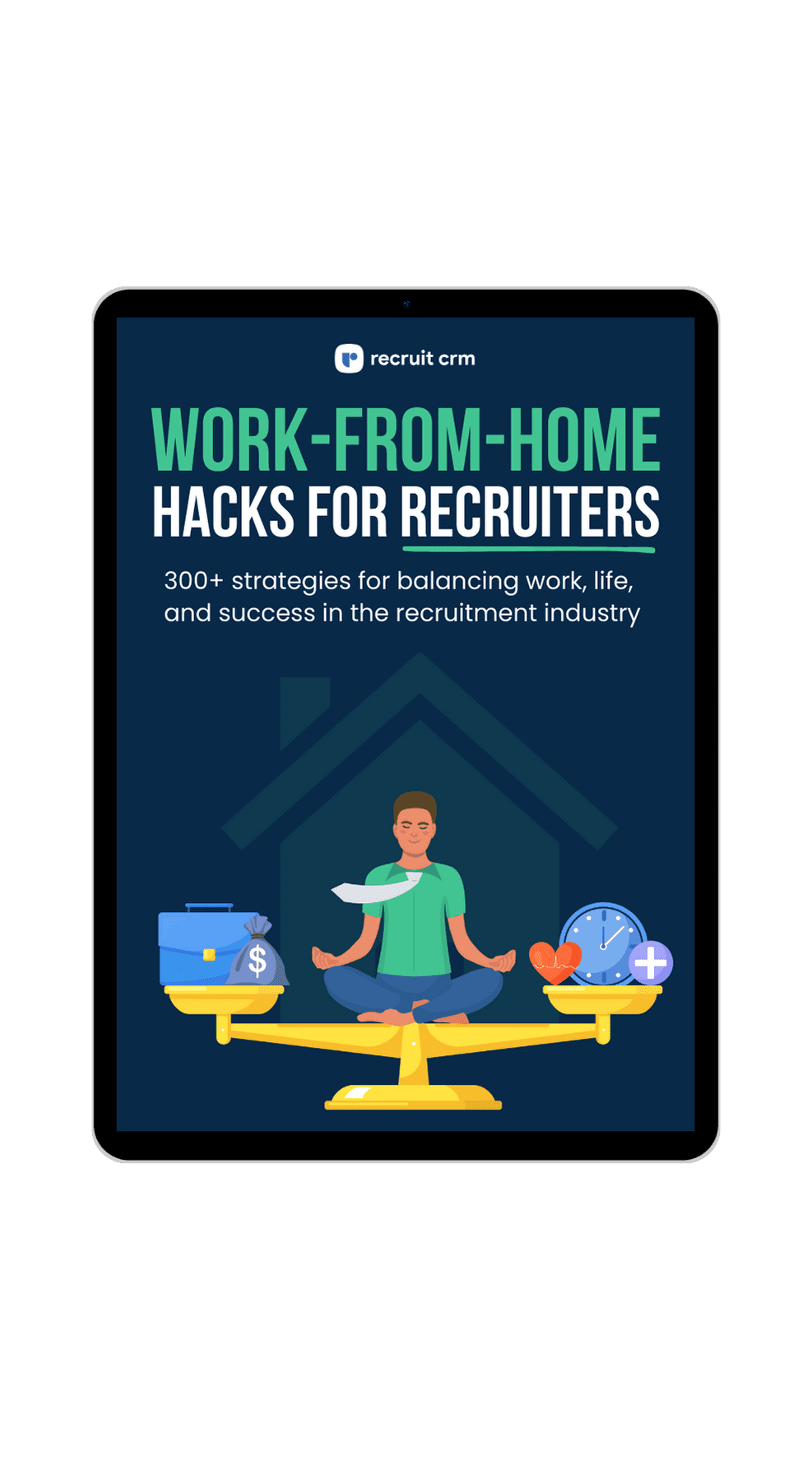What if we told you there is a free AI tool to draft candidate outreach messages, job descriptions, recruitment marketing content, and generate interview questions?
And that’s just the tip of the iceberg!
If you haven’t heard about Open.AI’s ChatGPT (the talk of the town), it is an AI language model trained to generate human-like responses.
From software engineers to college students, everyone is finding innovative ways to leverage ChatGPT to fast-track their day-to-day work.
Pretty exciting, right? Keep reading to find out how recruiters can use ChatGPT for hiring and save HOURS from their day!
How ChatGPT can optimize the hiring process

When it comes to the capabilities of ChatGPT and optimizing one’s workflow, the sky is the limit! Here are a few ways recruiters can use this intelligent AI assistant to complete their day-to-day recruiting tasks:
- Write compelling candidate outreach messages and recruiting email templates
- Create job descriptions for open roles
- Draft HR policies
- Derive salary benchmarking data
- Generate interview questions tailored to a particular role
- Create candidate experience surveys
- Ask ChatGPT about job roles and key responsibilities
- Conduct hiring market research
- Find keywords for job descriptions
Of course, these are just a few ways ChatGPT can revolutionize your way of recruiting.
While the AI tool certainly has limitations, why not explore ChatGPT’s full potential through your creative requests?
3 major benefits of using ChatGPT for recruitment
1. Automation of recruitment tasks
We all know that applicant tracking systems are the king of recruitment automation. But ChatGPT automates manual administrative tasks you’d never expect it to.
Whether you’re stuck crafting the perfect job advertisement for a role or can’t figure out how to cold call a candidate, ChatGPT can provide a solution in seconds.
The best part is that this intelligent chatbot has the answers to literally everything. So consider it your personal assistant and go bonkers with your commands and questions!
2. Improved candidate & client experience
Maintaining consistent communication is the key to satisfying clients and candidates. But recruiters don’t always have the time to respond to follow-up emails or candidate queries.
As helpful as email templates are, they’re not always the most personalized. But with ChatGPT’s human-like responses, recruiters can instantly draft personalized emails and messages from scratch.
Ultimately, ChatGPT can automate communication in a humanistic way, boosting the quality of the candidate experience.
3. More time, efficiency & productivity for hiring teams
With tools like ChatGPT doing all the heavy lifting for recruiters, imagine how much hiring teams can get done with all the extra time on their hands!
Admin tasks like maintaining communication flows and screening candidates can take up a lot of time. Fortunately, ChatGPT’s commendable abilities will instantly boost the productivity of recruiters, leaving them with more time and energy for value-added tasks.
Who wants to spend the day getting back to emails and drafting job offer letters? Just let ChatGPT take care of it.
How recruiters use ChatGPT to recruit candidates [+ 3 use cases]
By now, we’re sure you’ve gotten the gist of ChatGPT’s mindblowing abilities. But, of course, we couldn’t hold back from trying it ourselves! So if you want to put it to the test, here are three ways to start.
1. Assessing candidates
Recruiters can use chat GPT in several ways to assess candidates. Apart from creating a list of unique interview questions for candidates, you can even have the tool summarize resumes.
Simply throw the text of a resume into the chat box, and ask ChatGPT to write you a compelling summary of the candidate’s work experience.
But how does this help with candidate assessment?
With a summary of each resume available at your fingertips, you can use them to make quick recommendations to hiring managers and other team members.
Here is the output we received when we put the text of a Technical Product Manager’s resume into ChatGPT:

Impressive, isn’t it? And it doesn’t just stop here!
You can even enter data points of multiple resumes and ask ChatGPT which candidate has the best experience with a particular skill set.
Thinking about all the time you can save from candidate screening excites us!
2. Candidate searching
Have an enormous load of candidate data in your database, begging to be noticed by you?
Let ChatGPT handle it for you. If you’re using Boolean search to tap into existing data on your applicant tracking system, you can ask ChatGPT to write search strings.
Here’s how we tested this:

This function can be the secret to unlocking new talent within your database if you are new to Boolean search.
To take it a step further, you can ask ChatGPT to come up with the names of the top ten recruitment firms in the UK and put them into a string. This can help recruiters do the initial groundwork for a particular role to search for similar professionals across any industry.
Here’s an example:

With these search queries, recruiters can expedite the process of candidate sourcing just by leveraging their recruiting database and an AI chat assistant.
3. Create dialogues with hiring managers
At some point in your career, we’re sure you’ve had to deal with an unrealistic hiring manager.
As frustrating as it might get, it’s vital to have an open conversation with your client on how they can optimize their recruiting process and requirements.
Fortunately, with ChatGPT, you don’t have to be a master of persuasion. Just let AI do the talking!
Here’s how we created a dialogue between a recruiter and a hiring manager with unrealistic expectations for more flexible job requirements:


So the next time you’re stuck convincing a demanding hiring manager, reach out to your new AI best friend.
In fact, you can directly ask ChatGPT about the current expectations job seekers have from their employers. Then, with a clear understanding of what attracts top talent to open roles, you can use these pointers to convince hiring managers to optimize their hiring requirements.
Here’s an example of how we tested this:

ChatGPT is still in a very early stage, and through a detailed comparison of latest LMM, recruiters can transform the recruitment and staffing industry in the near future.
While this tool is adding immense value to working professionals, make sure you aren’t entirely relying on it for all parts of hiring.
At the end of the day, no AI tool can replace the human touch of recruiting, so use ChatGPT wisely.
How have you been using ChatGPT lately? Let us know in the comments!




